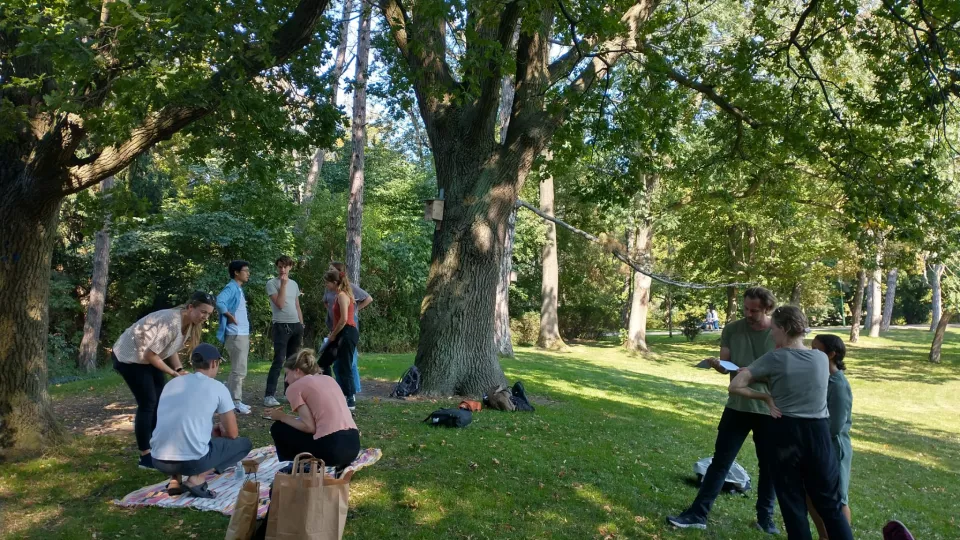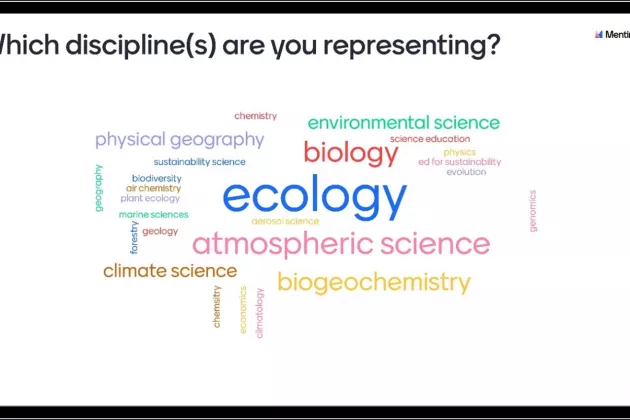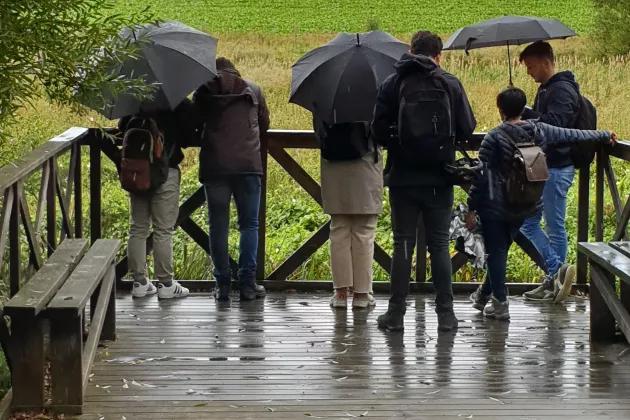To start off the event, the students were first asked to discuss in pairs the question “If I were a dish, which would I be?” While being a fun ice breaker, this also served to get the participants thinking about the role that food plays in their lives and the relations to their own identities. We then used food as a lens of analysis when considering some of global societies’ greatest challenges, especially regarding land use, climate change, biodiversity loss and chronic diseases related to health and nutrition.
The three questions that guided us throughout the event were as follows:
-
What can science and technology do?
On the first day, Yvonne Granfeldt, from the Department of Food Technology, Engineering and Nutrition at LTH, gave a complete overview of the nutritional needs of a healthy adult, breaking it down to the energy, protein, fat, carbohydrates, vitamins and minerals needed for good health and well-being. We were then guided by Karolina Östbring, also from the Department of Food Technology, Engineering and Nutrition, through the dynamic world of food processing. She challenged us to consider our own preconceptions about what we think of as so-called “processed food” and highlighted the potentials and challenges of using waste materials in large-scale food production, with the examples of rapeseed cake and okara.
-
What can policy do?
On the second day, Mark Brady from Agrifood, gave us an overview of the history of the Common Agricultural Policy of the EU. He showed us how it was derived and developed over the decades, and how current subsidy structures could be reformed to better support national and European sustainability goals. Cecilia Larsson, a current ClimBEco PhD from the Centre of Environmental and Climate Science, gave an exemplary presentation of policy conflicts regarding beef cattle in Sweden; their role in maintaining important biodiversity functions, and how policy and farmer decisions are entwined.
-
What can I do?
With the basic knowledge of what the planet and the human body need to stay healthy (spoiler alert: What is healthy for the planet is also almost exclusively healthy for us!), we then delved into questions of identity, culture and personal food choices. Bianca Denvall, owner of RekoDeli in Lund, was invited to this conversation where we tried to hold up multiple concepts at the same time. We considered how our individual food choices both can and must make an impact for the better, while at the same time recognizing the societal structures we are embedded in. Importantly, even the pure enjoyment of food also needs to be taken into account when aiming for a sustainable food system.
The final piece of the event was three parallel workshops where groups of participants gathered in their own cities of either Gothenburg, Lund or Malmö. While the tasks varied between the groups, they all had the red thread of seeing household consumption and waste with new eyes, with some hands-on examples of how to make delicious food from products otherwise seen as waste, such as expired yoghurt and old bread. Finally, each participant was asked to write their own reflections in a concealed letter to ‘their future self’ and then paired with an ‘accountability buddy’. Together with our accountability buddies, we each decided on an ACTION we commit to take on in the near future, in order to actualize a lesson learned at the summer meeting that we find meaningful and doable in our own lives.




